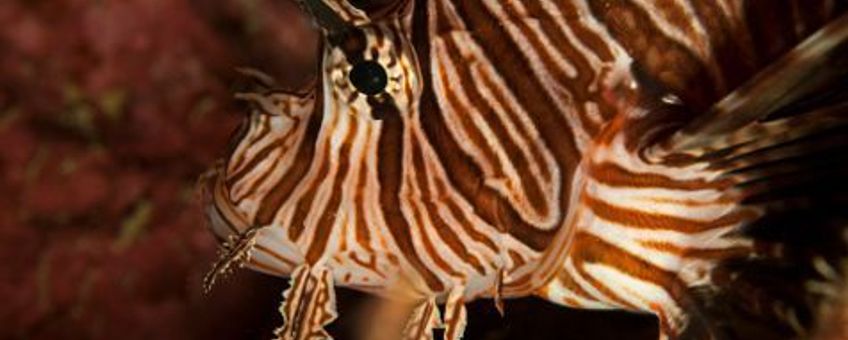
Koraalduivelbestrijding effectief op Bonaire en Curaçao
Bericht uitgegeven door Dutch Caribbean Nature Alliance (DCNA) [land] op [publicatiedatum]
Sinds het begin van de 90er jaren is de verspreiding van de invasieve, van oorsprong Indo-Pacifische, Koraalduivel over de Caribische Zee een steeds groter wordend probleem voor mariene parkmanagers en natuurbeschermers. Op een aantal Caribische eilanden zijn bestrijdingsprogramma’s opgezet om de verspreiding tegen te gaan, vaak gepaard met de inzet van vrijwilligers. Op Bonaire is een dergelijk programma meteen na de eerste waarneming van een Koraalduivel rond het eiland in 2009 in werking gesteld. Op Curaçao was dit twee jaar later.
Lees verder in het Engels…
Since the early 90s the rapid spread of the invasive, Indo-Pacific Lionfish (Pterois volitans/miles) throughout the Caribbean region has been an increasing problem for marine park managers and conservationists. On a number of Caribbean islands, lionfish control programmes were set in motion, often with a volunteer control component. On Bonaire, such a programme was initiated immediately after the first lionfish was spotted on both islands in 2009. On Curaçao, a control programme was adopted two years later.

Over these years, volunteers hunters have had a premonition about the decreasing trend of the lionfish numbers over time, but never before has a scientific assessment proven what so many volunteers had already spotted… until now! Over the last two years, the lionfish populations in the waters of Bonaire and Curaçao have been systematically studied by a joint effort between STINAPA Bonaire and CARMABI. A recent publication of these studies showed that lionfish numbers on Bonaire were 2.76 times lower in fished areas over unfished areas on the same island and an astonishing 4.14 times lower than in unfished areas on Curaçao, where the control efforts started much later than on Bonaire. This proves that while recruitment will continuously offset lionfish removal, the volunteer control efforts are successfully reducing local density and biomass of lionfish on our reefs.
The citizen science application created to record lionfish control efforts now has over 10,000 lionfish records for Bonaire. In December 2013 the application was expanded to include the islands of Aruba, Curaçao and St. Maarten. Once data for these islands is added, it will be possible to compare hunting efforts and lionfish population dynamics between the four islands.
Read the entire article in BioNews
Text: Dutch Caribbean Nature Alliance (DCNA)
Photo: Rudy van Geldere
Published by: Dutch Caribbean Nature Alliance (DCNA)
Nederlandse inleiding: Paul Westerbeek, Dutch Caribbean Nature Alliance
